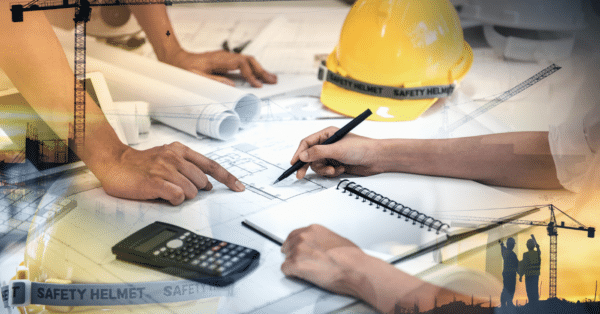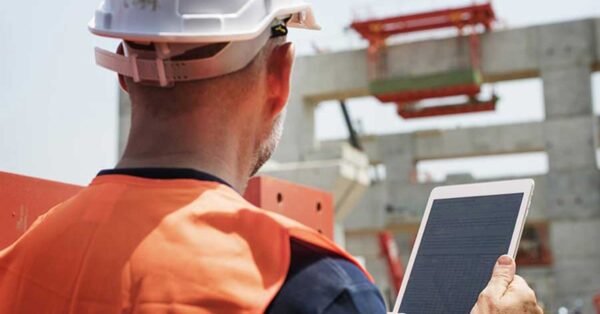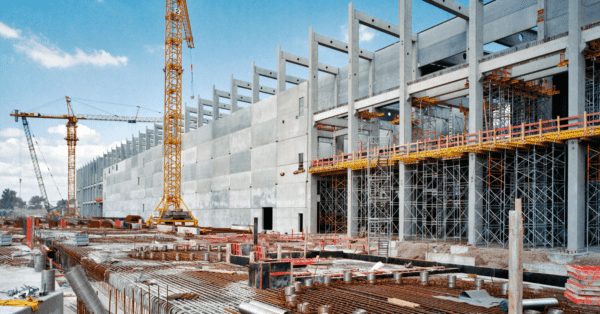Crime dramas and police procedurals have taught people how essential forensic science can be for solving crimes. But the field of forensics goes far beyond fingerprints, DNA, ballistics and tool imprint analysis. With exception of a handful of cases, forensic engineering involving buildings almost never gets the cinematic treatment. What isn’t shown on TV is that the profession often plays a critical role in construction litigation.
In this article, we will talk about the importance of forensic engineering, and how civil and structural engineering expert witnesses can be invaluable when determining the causes of building failures and performance problems.
Discovering lessons to keep the modern world together – Forensic Engineering
In the past few centuries, enterprising craftsmen have striven to make things better. Success in that often comes out of lessons learned from past failures – construction and engineering are no different. While many engineering professionals try their best to make sure most failures occur in a lab or mistakes caught by peer review, failures still occur in our existing buildings. They often occur years after the structure was built.
Forensic engineering can be thought of as the process to find answers to why a built component or system failed and then subsequently design solutions to remedy the failure.
For example, is a deck collapse after heavy snowfall mainly caused by:
- Too much weight from the snow?
- Wood frame members being deteriorated?
- Galvanized steel hardware too rusted?
- Or was it from the new stairway at the corner built by the owner?
The failures that forensic engineers investigate can include issues on the building itself and the property surrounding it. Two common professions that investigate building failures are civil and structural engineers.
What is Civil and Structural Engineering?
Civil engineering discipline involving the design, construction, and maintenance of buildings and infrastructure. The engineer relies on applied mathematics and the laws of physics, as well as the empirical knowledge of the structural performance of many different designs and materials. Common things civil engineers design are drainage systems, retaining walls, grading plans, and common buildings.
Structural engineering is a specialty inside the civil engineering field that focuses on the design and analysis of load resistance and support in structures. There are additional requirements to be a licensed structural engineer in states like California – CA’s SE license eligibility happens to be an additional 3 years of qualifying experience and passing the NCEES structural engineering exam. Professionals who have earned their S.E. license can supply accurate estimation of the safe weight maximums, or the magnitude of tremors a building can withstand during an earthquake.
Structural engineers are tasked with choosing appropriate materials for the project with the goal of reaching the architect’s aesthetic vision with structural functionality that satisfies the project requirements without exceeding the construction budget. The Los Angeles City Hall is a great example of how structural engineering can successfully marry functionality, dependability, and visual appeal to create an iconic structure.
What is a Forensic Engineer?
Forensic engineers are highly trained professionals who use their engineering analysis to determine why a material, component, or structure didn’t perform as intended. Essentially, they investigate areas that have suffered some type of structural failure which has resulted in property losses, injury, or is related to another civil or criminal case.
Forensic engineer duties
Forensic civil and structural engineers investigate and gather data related to the structures, products, components, or materials that have suffered a failure. Their duties include:
- Inspections
- Measurements
- Collecting evidence
- Conducting experiments
- Getting exemplar products
- Developing models
A forensic engineer’s findings can be used as evidence in court. They can therefore testify as an expert witness. They may also be consulted by attorneys who are trying to decide which questions to ask in a deposition or simply to gain insight. They play a vital role in litigated matters that involve structural failure and the resulting damages.
In addition to providing evidence for court cases, forensic engineers can also conduct their investigations for research purposes. In these cases, the goal is to gain a better understanding of the cause or causes of failure and to figure out how to prevent similar losses in the future.
Who hires forensic engineers?
Unlike crime lab analysts, who usually work for the state in federal or district law enforcement agencies, forensic engineers are normally independent consultants that are retained by attorneys in construction and real estate litigation matters. Occasionally, law enforcement agencies hire forensic engineers for consultation and investigation on a case-by-case basis.
Why good forensic engineers are invaluable in construction litigation
In construction litigation matters, getting to the heart of the issue is an important step for reaching a resolution. Sometimes the answer to why a specific building component failed can be a highly technical and complex reason with many factors at play.
An experienced forensic engineer brings to the table highly specialized analytical skills and knowledge to diagnose and determine those factors that lead to a failure of a component or structure. When brought in early on the case to perform investigations, they can consult with the attorney on their initial findings that can help the counsel build an effective team to analyze the issues in-depth.
Dependable forensic engineers use a systematic examination process that covers every possible explanation and piece of evidence. This information can be vital to reach the best outcome for the client.
It often comes down to competing Expert Opinions
In high-stakes construction litigation, the opposing counsel will most likely hire a construction and/or engineering expert witnesses to argue the claim. Few building failures can point to a single root cause – multiple causes can be fiercely debated on which is the leading contributor.
Because of this, experience and expertise are only part of what makes a great engineering expert witness.
To handle the counter-arguments from the opposing counsel’s experts, the forensic engineer must also be able to communicate in a way that leaves little room for confusion. Nothing is more deflating to an opposing counsel than a professional who can frame complex construction concepts in a manner a layman can easily understand.
This article was originally published by Xpera Group which is now part of The Vertex Companies, LLC.







